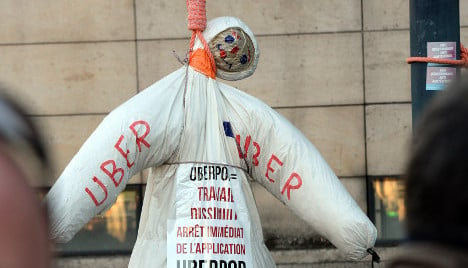- Hollande condemns violence and says UberPop must be declared illegal
- Interior Minster lodges legal action against Uber for “pursuing an illegal activity”
- A number of taxi drivers are continuing to protest in western Paris


French president François Hollande has stepped in to condemn the violent protests by taxi drivers and called for UberPop to be taken off the road. A number of taxi drivers continued their strike on Friday.



Member comments